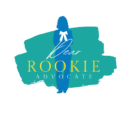
Niza Lebo Phiri
Dear Rookie Advocate,
“The work before the work.” – Parker J. Palmer
Parker J. Palmer is an American author, educator, and activist. Over the past year, his words have become a constant reminder that before I can do any meaningful work, there’s personal work I must submit myself to first and I wanted to take some time and share this brilliant idea with you.
No matter the field you’re in—law, relationships, advocacy, or anything else—true success (and, might I add, fulfilment) requires a commitment to self-work.
What is self-work?
To me, self-work is the intentional process of bettering myself emotionally, mentally, physically, spiritually, and socially. It’s about actively developing awareness and understanding of myself and the world around me, ensuring that I’m not just existing but actively participating in my journey.
Many of us lack this, which is why we float through life or find ourselves involved in great work but still feel unfulfilled. Worse, without self-work, we are vulnerable—when challenges hit, we don’t know how to care for ourselves or navigate our way through them.
So where do you start? What is the necessary work you need to do as you rise in your academics and career?
Emotional Awareness & Regulation
One of the areas I am very passionate about and one that I believe is foundational when it comes to self-work is emotional awareness and regulation.
Emotional awareness is the ability to recognize and understand your emotions—what you feel, when you feel it, and how those emotions affect you. For example, when was the last time you felt anxious? What happened? How did it affect you? What did you do as a result of those feelings? Awareness means sitting with the emotion and addressing it with understanding.
Emotional regulation, on the other hand, is the ability to systematically manage emotions effectively. In a high-pressure career like law, these skills are important for maintaining professionalism, making rational decisions, and handling workplace challenges without being overwhelmed. I should also add that emotional awareness and self-awareness go hand in hand. Without emotional regulation, it’s easy to become reactive, drained, or even burnt out.
Take this common scenario: new opportunities or challenging cases often bring anxiety and self-doubt, which can cloud your judgment and affect your ability to perform effectively. Someone with emotional awareness can recognize these feelings early and apply emotional regulation strategies to manage them. Without these skills, it becomes harder to maintain clarity and professionalism under pressure.
A Mindfulness Technique for Emotional Awareness & Regulation
One of the most powerful mindfulness tools out there is called R.A.I.N—a simple yet profound practice for working through emotions with awareness and self-compassion. It’s highly effective when dealing with anxiety, depression, or even the everyday stress that comes with life or careers.
Here’s how it works:
R – Recognize
You can’t work through what you don’t acknowledge. The first step is to pause and name what’s happening inside you. Ask yourself, What am I feeling? What thoughts are running through my mind?
A – Allow
Instead of fighting, avoiding, or suppressing the experience (which many default to), allow it to be there. It’s not about fixing or judging—it’s about giving space for whatever is showing up. Ask yourself, Can I let this emotion just be here without trying to change it? What happens when I stop resisting what I’m feeling?
I – Investigate
Next, get curious. Always choose curiosity over criticism this allows you to explore your experience with kindness instead of criticism. What’s behind this emotion? Where is it coming from? Often, our emotions have deeper roots than we realize. I explain this in my digital course Basic Emotional Awareness and Regulation. Ask yourself, What might have triggered this feeling? What beliefs or stories am I telling myself about this situation?
N – Nurture
Finally, offer yourself some compassion. Imagine how you’d comfort a close friend going through the same thing—then extend that same kindness to yourself. Ask yourself, What do I need in this moment? What would I say to a friend who was feeling this way?
This process deepens our understanding of ourselves, helping us engage with life intentionally rather than reactively, making self-work a conscious practice. Try it next time you’re feeling overwhelmed and see what shifts.
I hate to imagine how demanding the legal profession is, but success isn’t just about knowledge or technical skills—it’s also about mastering yourself. As you continue in building your career, commit to “the work before the work”. Your future self will thank you.
All the best,
Niza Lebo Phiri.
Licensed Counselor
Certified Life Coach
Founder At Yeza
Niza Lebo Phiri, is a licensed Mental Health Counsellor, certified Life Coach, and Neuro-Linguistic Programming Practitioner (NLP). She possesses over three years of experience in mental health therapy and counselling. Niza specialises in areas of wellness and wellbeing, including relationships, existential crises, anxiety, and depression. She is the founder of YEZA, a Zambian wellness business that provides online therapy and coaching services, as well as wellness digital courses.
